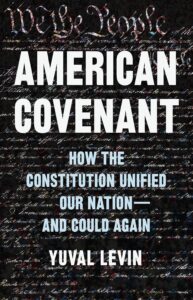Hot Sheet, Sheet Pan Recipes for Every Day and Celebrations
Olga Massov & Sanae Lemoine
Harvest Publishing, March 24, 2024
A wonderful collection of easy to prepare dishes, from starters and snacks through dinnertime and dessert, all made on a sheet pan! What initially caught my eye about this particular cookbook was that it was written by cookbook writers and food editors, so I thought it was worth having a look at yet another sheet pan cookbook.
Hot Sheet boldly celebrates the versatility of the sheet pan while creating simple and flavorful recipes with minimal cleanup!
The photography is gorgeous. Everything looks so delicious and elegant: Chicken Faux-gine with Olives, Dates, and Preserved Lemons, Coconut Fish en Papillote with Cherry Tomatoes, All-the-Crispy-Bits Mac and Cheese, Savory Bread Pudding with Leeks and Pancetta, Open-Face Croque Monsieur for a Crowd, Vietnamese Pork Chops with Snow Peas…and did I say Blackberry-Lemon Clafoutis?
Say hello to flavor-packed dishes for weeknight dining and special occasions. As Olga and Sanaë write, having a quick and easy meal doesn’t have to mean sacrificing taste or sophistication.
Named one of the best cookbooks of the year by Bon Appetit, Food & Wine, and Saveur.
JACKIE, A NOVEL
Dawn Tripp
Random House, June 18, 2024
I happened upon a friend who had just finished this book, and it was offered to me to read. I accepted. She made sure I knew it was a NOVEL. I never was a big fan of Jackie O, but I was intrigued and enjoy biographies.
I’m totally a fan now! It’s as if Jackie is speaking to us. Her thoughts, desires, her absolute love for her husband even knowing his nuances and trysts with other women. Amazingly well read and educated, she actually was a great asset as a president’s wife. Calming, listening, editing.
She meets Kennedy first at 21 and thinks him not her type--too good looking, too confident but she is drawn to his humor and drive. A drive possibly enhanced by his family’s quest for a president in the family. We find her at ease with the senior Joseph Kennedy, and she is caught up in the family’s holiday reunions.
She is forever lamenting those 3 seconds on November 22, 1963, when those bullets ended life as she knew it. It was a very tough chapter to read, bringing back so many memories. She became more introverted and turned to caring for her most precious children. Some men were very good to her--Onassis--almost father like though they turned on her after. She wanted to be left alone by the journalists and shielded her children from their constant chatter.
Truly an amazing story.
The Old Lion: A Novel of Thoedore Roosevelt
Jeff Shaara
Biographical Fiction
St. Martin’s Press, May 16, 2023
Introduction
This book is a biography of Theodore Roosevelt told through the eyes of Theodore Roosevelt. By that I mean that Shaara tells the story as if Theodore Roosevelt is narrating the story himself. This is a common way for Jeff Shaara to write his novels.
Author
Jeff Shaara is the award-winning New York Times, USA Today, Wall Street Journal, and Publishers Weekly bestselling author of nineteen novels, including The Old Lion and The Shadow of War, as well as Gods and Generals and The Last Full Measure—two novels that complete his father’s Pulitzer Prize-winning classic, The Killer Angels.
Story
This book tells the story of Theodore Roosevelt from his years as a young lad in the late 1800’s growing up in a wealthy home in New York City, through his difficult years after the death of his first wife Alice and his retreat to the Badlands of North Dakota, to his entrance into New York State politics and, ultimately, his entrance into national politics as the Assistant Secretary of the Navy, then Vice President, and assumed the Presidency upon the death of President McKinley from assassination.
Shaara has a fascinating way of letting us look at the world around Theodore Roosevelt through his own eyes as Roosevelt relates what he is thinking and feeling about everything. We get to see Roosevelt as a 7-year-old develop an interest in zoology and then his interest in birds leading to his expertise in ornithology. His interest in the natural world around him stayed with him his entire life. He became experienced in taxidermy and filled his boyhood home with many of the creatures he was able to restore from his skill in taxidermy. For all of his life, Roosevelt suffered particularly from asthma. He had many serious episodes growing up. However, he learned that being outside and exercising was very helpful in controlling the onset of these episodes, and that led to him being extraordinarily fit as a young man.
We journey with Roosevelt through his years of frustration with New York State politics. A hallmark of his years in Albany were his efforts to fight corruption at all levels of government. He aspired to be the Speaker of the New York State Assembly but ultimately lost that goal. Eventually he “retired” from politics and moved out to the Badlands of North Dakota. He spent many years living there and learning the ranching business and then moving back and forth between North Dakota and New York has he pursued his political career.
Theodore Roosevelt entered U. S. government service when President Grover Cleveland appointed him Commissioner of the U.S. Civil Service Commission. After the presidential election of 1896, President McKinley appointed Roosevelt as his Assistant Secretary of the Navy. In that position, Roosevelt pushed hard for a buildup of the navy fleet. During the late 1890’s, Roosevelt began advocating for the expulsion of Spain from Cuba. When the U.S.S. Maine exploded in Havanna harbor, Roosevelt ordered a naval expedition to respond. Ultimately, the U.S. declared war on Spain and the Spanish-American War began. Roosevelt resigned from the government and successfully lobbied to an appointment as an officer in the cavalry to fight during the war. Through Shaara’s writing, we get to see the great difficulties experienced by the U.S. military fighting that war. And, we got to learn about Teddy Roosevelt and his Rough Riders regiment.
Ultimately, we see Roosevelt assume the Presidency after the assassination of President McKinley. We are able to see many of the initiatives that President Roosevelt achieved, including building up the National Parks system. We follow Roosevelt into his twilight years in Oyster Bay as his body begins to fail him but his mind never rests. We follow him right to the end at 4:15 a.m., January 6, 1919.
Evaluation
I have always loved Jeff Shaara’s writing style. I started reading his novels when I was in the U.S. Army and was working in the Pentagon the last years of my military career. Shaara is always able to help us see the world through the eyes of the characters in his books, which is more intimate than simply writing about those characters. I picked up this novel after hearing a lecture by Doris Goodwin Kearns on her three most favorite Presidents. Theodore Roosevelt is on top of her list. Afterwards, I searched online for books about Theodore Roosevelt. There are many. However, when I saw Jeff Shaara’s novel, I knew that was the one I wanted to read. I was absolutely entranced. It held me for the couple hours each day that I read over a period of several days. I was actually sad when the book ended. But, I have learned a lot about this great man, this incredible patriot, and this amazing President.
If you like history, you will love this.
Isola
Allegra Goodman
Dial Press, February 4, 2025
Isola, a work of historical fiction by Allegra Goodman, draws inspiration for the real-life story of Marguerite de la Rocque de Roberval. Goodman’s masterful writing style and vivid descriptions transport readers back to the 16th century.
Amidst the opulence of wealth, status, and a promising future, Marguerite’s life takes a sudden turn when her abusive and volatile guardian cousin, Roberval, betrays her by mismanaging her resources. He leaves her penniless, homeless, and without the means to sustain herself in the life she was destined to occupy .
Due to her lack of a dowry, which would have allowed her to marry, and squandered resources both financial and social, Marguerite is forced to accompany her cousin aboard his ship on a perilous journey . Their destination, New France, is the distant land discovered by Cartier, believed to be a gateway to the riches of the expanding world. A romantic indiscretion by Marguerite enrages her cousin, forcing her and her lover and a companion nurse to disembark the ship. Marooned on an island, their survival in the unforgiving Canadian wilderness is dependent on their limited skills and provisions they possess. The exiled group’s collective ingenuity allows them to survive their harsh environs, but soon Marguerite’s fate and life’s course will change with the death of her companions. Her suffering is magnified by her aloneness, and the reader is consumed by her pain. She not only needs to gather food, but she must learn to hunt to live.
These conditions, which might have led to her demise, appear to have fueled her ability to return home.
Marguerite’s unwavering will to survive and her emotional rebirth paved the way for her return to France. Upon her return, her distressing story reached the Queen, who generously invested in Marguerite’s mission to establish a secure and dedicated school for young girls equipping them with the knowledge necessary to shape their own destinies. Goodman’s incredibly poignant saga weaves a captivating narrative that chronicles Marguerite’s life journey. Isola is an enduring tale of a woman’s self- discovery and remarkable resilience.
I highly recommend this book.
Remarkably Bright Creatures
Shelby Van Pelt
Ecco Publishing, May 3, 2022
I wasn’t entirely sure what to expect when I first downloaded the audiobook for Shelby Van Pelt’s Remarkably Bright Creatures. But what I got was a tender, surprising debut that seamlessly weaves together grief, connection, and the magic of unexpected friendships. The premise is certainly an unusual one—a friendship between a widowed night janitor and a highly intelligent giant Pacific octopus. Told in three alternating points of view, the book kept me on my toes, and I wasn’t always sure where the twists and turns would take me but I found myself dying to get back into my car and drive somewhere, anywhere, for an excuse to listen more.
The story centers around Tova Sullivan, a 70-year-old woman quietly grieving both the loss of her husband and the earlier disappearance of her teenage son. She finds comfort in her job cleaning the Sowell Bay Aquarium at night. There she encounters Marcellus, a regular cephalopod Houdini with a deep disdain for human foolishness. Marcellus quickly became my favorite character (no offense, Tova). His chapters, narrated in his own voice, are completely delightful and, somehow, after a little while it starts to feel not at all unusual to have an octopus as a point of view character. I was also utterly charmed by the narration. Michael Urie as the voice of Marcellus provided surprisingly humorous moments that I hadn’t been expecting.
The novel also follows Cameron, a young man without a lot going on his life. His storyline initially feels disconnected from the others, but eventually everything comes together in a tapestry of threads that all tie together beautifully (even if I admit I did see a few of them coming - it is a testament to the charm of the book that I didn’t mind in the slightest).
Ultimately, Remarkably Bright Creatures is a novel about loneliness and found family. It deals with the grief that lingers long after a loss, but it also celebrates the resilience of the human (and cephalopod) spirit. Whether you read the physical version or listen to the audiobook, you’re in for a treat.
An Unfinished Love Story: A Personal History of the 1960s
Doris Kearns Goodwin
Audiobook, Narrated by the Author with Brian Cranston
Simon and Schuster 2024
Richard Goodwin, a presidential advisor and speechwriter to both John F Kennedy and Lyndon Johnson, “was more interested in shaping history”, said his wife Doris Kearns Goodwin, “and I in figuring out how history was shaped.”
When Dick Goodwin turned eighty years old, he determined it was finally time to open the 300 boxes of papers and memorabilia he had saved from the 60’s, and he and Doris began to revisit the decade in chronological order, leading to the writing of this book.
Doris Kearns Goodwin is a renowned award-winning presidential historian, who has written biographies of Franklin and Eleanor Roosevelt, Abraham Lincoln, John and Jacqueline Kennedy, Lyndon Johnson, and Theodore Roosevelt.
This book, however, is very personal. We see the decade through the eyes of her husband, some 10 years her senior, who was the primary speechwriter and presidential aide to John Kennedy; became close friends with both Bobby and Jackie Kennedy; and advisor and speechwriter for Johnson after Kennedy’s death. He became a strong antiwar advocate towards the end of the decade, speaking out against Lyndon Johnson’s policies and leaving his cabinet, moving his support to McCarthy and then Bobby Kennedy as they bid for the White House. In counterpoint, Doris Kearns was asked by Johnson to help him write his presidential memoirs and she became a huge admirer of this president. Kennedy vs Johnson was an intellectual rift in their marriage for years.
The 60’s are largely remembered for the end of the decade, with the Vietnam war, the assassinations of Martin Luther King and Robert Kennedy, the riots and violence on college campuses. It was the beginning of America’s distrust in the government, (which then continued with Watergate, Nixon, the war in Afghanistan, up to the schism in the country today).
But extraordinary changes took place during the sixties that still determine America’s future. It is hard, I think, to now imagine a country without the social structure that these two presidents put into place. The Peace Corps, the expansion of Social Security to create Medicare and Medicaid, HeadStart, the Civil Rights act, the Voting Rights act, the Space Race. It also saw the nascent women’s movement come into being.
Kearns Goodwin and her husband witnessed all of this from “the room where it happened” which makes this book so remarkable. I have not seen the print copy of this book, which I imagine has a lot of wonderful photographs. But, by listening to it, we hear audio clips of John Kennedy, Lyndon Johnson, Martin Luthor King, Bobby Kennedy, and others who were part of this changing time. It felt exhilarating to hear the words that truly effected change.
For those of us who lived through and remember the tumultuous 1960’s decade, I think this book will resonate with you as much as it did with me. And, if you are too young to remember, then I suggest coming along with one of America’s great historians as she recounts the decade beginning with JFK’s “New Frontier” and continuing with Lyndon Johnson’s “Great Society”. It’s quite a ride.
You Should Have Known/The Undoing
Jean Hanff Korelitz
Grand Central Publishing, March 18. 2014
I had just finished this author‘s most recent thriller and decided to look through her other works to find my next read. Since this book has been adapted for an HBO production starring Hugh Grant and Nicole Kidman, it made the choice easy!
The main character is a marriage therapist who posits in her about-to-be-published book that “you should have known” your partner’s future behavior based on your dating interactions. The story turns on its head when something horrible happens involving her husband and she realizes she’s been fooled for many years.
Korelitz is as adept at drawing not only cutthroat private-school mothers and therapists, but also police backstories, allowing her readers to intimately understand those worlds. I know nothing about these worlds, but I feel like I’ve learned a lot. You don’t always get that from a fiction book!
The Henna Artist (The Jaipur Trilogy Book 1)
The Secret Keeper of Jaipur (The Jaipur Trilogy, Book 2)
Alka Joshi
Mira Publishing, 2020, 2021
The Henna Artist
What is unique is the book’s description of life in Jaipur, India in the 1950’s and its significance. Lakshmi escapes an arranged and abusive marriage and travels alone to the city of Jaipur where she becomes a henna artist, most often to wealthy women. The art is mostly used as a provocative design on the body and, even today, a bride is adorned with designs.
It is a time when India is trying to let loose the shackles of British rule and become independent and that is precisely what Lakshmi is trying to do.
Twists and turns, her ex-husband turns up and brings with him a 13-year-old sister, Radha, she did not know she had. We see her outlook on life versus the traditional and the young girl who is in love out of her class. To become independent is very unusual for any woman at the time no matter what her social status. She mentors a young, orphaned boy Malik. Problems arise and she must leave Jaipur for a small city in the Himalayas with a new opportunity at a local clinic.
I have been in Florida over the winter and our book club has been reading this series. I have now finished this second book which I enjoyed more than the first. It follows the life of Malik the young boy Lakshmi mentored. He has attended a British school and is quite polished. He heads to Jaipur to apprentice with the Jaipur Royal Palace who are constructing a state of the art cinema that collapses! As a boy grown up on the streets, he is suspicious and wants to uncover the truth. Only when Lakshmi becomes involved, does it all become right.
There is a third volume, which I will read SOON!
The Women
Kristin Hannah
St. Martin’s Press
February 6, 2024
Introduction
This book tells the difficult story of American women who served in the U.S. Armed Forces during the Vietnam War in the 1960’s and the aftermath they encountered upon returning home. It takes us through the 1970’s as the star of the novel, Frankie McGrath, deals with her issues resulting from the war experience.
Author
Kristin Hannah is an American author who grew up in California, attended the University of Washington and graduated with a degree in communications. She subsequently went to law school and practiced law in Seattle before becoming a full-time writer. This novel debuted on The New York Times bestseller list at number one in early 2024.
Story
The story begins with Frankie and her family hosting a party to see her older brother, a fresh Naval Academy graduate, off to the Vietnam War. In her father’s study, there is a wall of family heroes from all previous U.S. wars. Her dad relishes in that family history. Frankie is envious of the honor and respect family and friends are giving to her brother Fin as he prepares to ship off to war. Frankie is in school finishing her nursing degree and when she graduates, gets a job in a small hospital in San Diego. While still learning her responsibilities as a new nurse and working the night shift, Frankie encounters a patient who lost his leg while serving in Vietnam. He talks about what his experience was like in the evac hospital right after he lost his leg when stepping on a mine. He told her the nurse he had really got him through that initial tough experience. As she sat with him, she had the thought, women can be heroes.
Frankie makes the decision to go to a Naval Recruiting station to see about signing up for service as a nurse. She discovers the Navy required two years of nursing experience before signing up, So did the Air Force. The Army was the only service that permitted her to sign up and immediately ship out for training. She comes home to tell her parents what she has done, only to find them horrified. “Women don’t serve!” her dad says. Just as she gets ready to ship out for training, she learns that her brother has been lost at sea during the war.
The story follows Frankie as she arrives in country and is immediately thrust into the results of wartime combat and its aftermath. The horror of the wounds, the amputations, the burns, and the loss of life are a lifetime of experience in very short order. It turns out, Frankie has remarkable skill and is called on to use all her skills so often during the two years she served in evac hospitals in Vietnam. The story places Frankie in some of the worst battles documented during the Vietnam War. She ended up being in an evac hospital near the fighting in Pleiku during the Tet offensive in 1968. The carnage never stops. Through the experiences, Frankie makes friends with her fellow nurses and the doctors she serves with and they work to keep each other sane as they go through such tough experiences. She falls in love a couple of times and the affairs end up with the doctor being reassigned, killed, or Frankie discovers they are married. Life just goes on for her.
When Frankie’s time of service is up in Vietnam, she returns home to find a country rabidly opposed to the war in Vietnam. As evidence turns up of atrocities committed during the war and a massive coverup by the U.S. government, the sentiment against the war turns even uglier. Worse for Frankie, she begins dealing with what we now call post-traumatic stress disorder (PTSD) but was not recognized for what it is back in the early 1970’s. As she seeks to get help, no one believes she was a soldier in Vietnam. Women don’t go to war. (As it turns out, about 10,000 women did serve, most of them in the medical services.) Two of the friends Frankie made when she first arrived in Vietnam were Barb, a black women from Georgia, and Ethel, a women from Virginia who eventually wants to become a veterinarian. As Frankie continues to deal with her PTSD, she becomes more and more reliant on drugs and alcohol to take the edge off. As she descends into major depression, Barb and Ethel are there to help her through the difficult times. The story covers Frankie’s involvement in several anti-war movements and organizations designed to help war veteran’s make the transition back home. Significantly for Frankie, the world is very slow to pick up on the issues of women war veterans—women don’t serve, they say.
Ultimately, Frankie decides she needs to leave California and start a new life. She convinces Barb to go on a road trip with her. They end up driving through Montana where Frankie sees a sign for a lot for sale, 27 acres. Frankie and Bard drive through the lot as Frankie’s mind is in a whirl. Ultimately, Frankie buys the place and turns it into a retreat center for women veterans of the Vietnam War who are struggling their way out of drug and alcohol addiction and PTSD and just need a place to find themselves. The story ends with a reunion of the 36th Evac Hospital staff during the unveiling of the new Vietnam Veterans Memorial in Washington, DC in November 1982. As she goes and mingles with the many veterans, she runs into her mother and father as all three are looking for her brother’s name on the wall. And then, she runs into one of her first loves from Vietnam, a man she thought she had watched die. At last, everything just comes together for her.
Evaluation
This book was a fascinating read for me—not only for the strength of the story and the vivid descriptions of war, but because the first half of the book was very personal for me. My dad was an Army chaplain and he served in Vietnam during the period this story takes place, and served in the same place as the story takes place. He was assigned to the U. S. Army’s 1st Cavalry Division and was based out of An Khe, not far from Pleiku where much of the fighting took place that was at the heart of this book’s first half story. His letters and tapes that he sent home described much of the same story that Frankie and her friends experienced, just without all the medical gore. Dad described colleagues he lost during battles and described a lot of the countryside he flew through as he traveled to visit his troops.
The second half of the book hit me hard as well. I started college in the fall of 1970 during the heart of the anti-war campaigns taking place on college campuses around the country. When I arrived at my college in St. Paul, MN, there was a major protest taking place across the street. The 1970’s were a time when there was so much hate in our country for the Vietnam War, for the government that got us into the war, and yet very little appreciation for the soldiers who served in that war. As I watched Frankie struggle to find herself and a new purpose for her life, I remember the newscasts and newspaper articles and public conversations taking place about how the country can redefine itself and find a new sense of purpose. We’ve made progress from that time, and yet my sense is that struggle still continues. I hope you enjoy the book.
Playground
Richard Powers
W.W Norton & Company
September 24, 2024
Similar in structure to Power’s Pulitzer Prize-winning The Overstory, Playground follows three different storylines in three different timelines, centering on four characters. It is, at first, disorienting to try to figure out how these storylines will come together; fortunately, the book is so beautifully written it offsets bewilderment.
We are introduced to the primary narrator, Todd Keane, at middle age, dealing with a mortal disease. He has become a beyond-wealthy digital tycoon by creating the online game “Playground”, a virtual economy platform with billions of daily users.
In his youth, Todd meets Rafi Young, both students at an exclusive Chicago high school. Though from very different socioeconomic backgrounds, similarly dysfunctional families, and a classic left versus right-brain mentality, the two bond over their love of games—chess, at first, then the ancient Chinese game of Go. The thirty-year cross-racial friendship is sustained by fierce and constant competition.
A third character joins the two men during their college days. Ina Aroita is from Tahiti, a sculptor and artist that both men fall in love with.
The final important character is Evelyne Beaulieu whom we meet in Montreal, 1947. Evie’s father, in association with Jacques Cousteau, has invented the Self-Contained Underwater Breathing Apparatus and Evie becomes one of the first, at age twelve, to breathe and experience life underwater. She grows to become a world-famous SCUBA diver (her character patterned after the renowned Sylvia Earle), writing, teaching, and exploring the ocean’s depths for the entirety of her life. Power’s illustrations of ocean life are enthralling, even spiritual, particularly in describing the giant oceanic manta rays: thirty feet across from wingtip to wingtip, they have enormous brains, are deeply curious, will interact with humans when they deem it necessary, and, quite clearly, play.
{To be sure, this is a cautionary tale about the current and future health of the ocean. Given the depth plus the breadth of the ocean, ninety-nine percent of the inhabitable space on our planet is underwater. With humans unable to live there, our knowledge of the ocean and ocean life is significantly limited, with 80% remaining unexplored and largely unknown.}
How inappropriate to call this planet Earth, when it is clearly Ocean
—Arthur C Clarke
Powers also follows the residents of Makatea, an atoll in French Polynesia. Decimated by phosphate mining in the early 1900’s, Makatea is now being approached by tech billionaires who want to use the island as a launching pad for “seasteading” (this is not the fiction I assumed…it is a real Silicon Valley venture). The islanders must vote to allow this, choosing for or against the future and all its promised bounty. It is in Makatea that all the characters finally come together.
The connecting theme in the book is play, particularly finite versus infinite play, (A finite game played for the purpose of winning; an infinite game for the purpose of continuing the play.) We discover Powers is also playing a narrative game with us, his readers, and it takes attention to figure out what is going on.
I first “read” the book by audiobook; the ending so confused me, I bought a print copy and started over from the beginning (a testament to the pleasure of reading this book). I offer only one hint: Half of the book is in italics, and that is a key towards deciphering the twist at the end of the story.
I enjoy researching a book I am reviewing by finding and listening to author interviews, and it was especially true with Richard Powers. Playground is an extraordinary novel by an author who, in the past, has been criticized as writing “think pieces”, not novels. There is no question that Powers is awed by, and passionate about, his subjects, in this case the technological revolution that humans may be losing control over, and the majesty of the ocean.
Countering the conventional notion of human exceptionalism comes through strongly in this book, as it does in many of Powers’ books. We humans are a very small component of the “immense journey”, ancillary to the larger story of life on earth. Although reading about both the destruction of our oceans and fourth industrial revolution sounds dystopic at best, Powers suggests we move on not with a feeling of despair, but with astonishment of where we are going from here.
Playground may be confounding, but that is the beauty of it. I found myself thoroughly immersed in each of the disparate stories, well before I understood the “game”. Powers is a wizard of a writer, and I highly recommend Playground.
 Vicki’s Pick (Guest Reviewer)
Vicki’s Pick (Guest Reviewer)
February 2025
The Amen Effect
Sharon Brous
Avery Publishing, January 9, 2024
In her remarkable book, Sharon Brous highlights the social and biological need for all to be genuinely present and inclusive. She considers this to be a moral and spiritual necessity that results in a more meaningful life and a more connected and caring world.
Filled with practical guidelines and inspiring anecdotes, Brous highlights the possibilities inherent in addressing and healing the polarization, tribalism, and violence of our contemporary culture. For an in depth look at someone who has spent her career in supporting and advocating for all to embrace their “better angels” read & enjoy The Amen Effect.
American Covenant
Yuval Levin
Basic Books Publishing
June 11, 2024
Introduction
This book is a discussion of the creation of the U.S. Constitution and the changes in our political climate over the last 237 years that have affected how our government operates and how we, the people, understand our government.
Author
Yuval Levin is the director of Social, Cultural, and Constitutional Studies at the American Enterprise Institute (AEI), where he holds the Beth and Ravenel Curry Chair in Public Policy. The founder and editor of National Affairs, he is also a senior editor at The New Atlantis, a contributing editor at National Review, and a contributing opinion writer at The New York Times. His previous books include The Fractured Republic and A Time to Build. A former member of the White House domestic policy staff under President George W. Bush, he live in Maryland.
Text
As an educated political scientist used to studying pretty heavy texts on government operations, I approached this read with a curious frame of mind. I have always loved the beginnings of our country, and was recently pumped up again after reading David McCullough’s biography of John Adams. I have been concerned about the state of our country and the increasingly ineffective functioning of the U.S. Congress in the last 20 years or so. Now added to my worries are concerns about the functioning of the U.S. Supreme Court. So, I was hoping for some enlightened perspective in reading this book.
Mr. Levin does an excellent job of capturing the history of the U.S. Constitutional Convention which took place in Philadelphia beginning in 1787. He takes us through the Convention and recaps the significant issues that needed resolution in order to create a functioning central government—something the country was lacking because it was really just a confederation of 13 individual states. However, the experience of the first 19 years of our country’s existence highlighted the risk the country faced by not having a functioning central government. Yet, the challenges of reaching agreement between 13 very different state perspectives was stupefying. Mr. Levin relies heavily on James Madison’s personal notes, his journal that he kept during the Convention, to help us understand the logic and thinking that went into the compromises that were made to create our central federal government. He takes us through the various negotiations that became necessary and also explains the logic behind the various points of view that needed to be accommodated. He then gives us a perspective on the unique nature of we the people under this new republican democracy that the world had never seen before. Mr. Levin then takes us through quite a discussion as to how our environment and political culture have changed adversely in the last 50 or so years leading us into what he terms a demagoguery.
The author explores for us the concept of Federalism as it existed as a guide in forming the government in 1787, and then takes a look at each of the three branches of government. It each case, he recounts the original concept as written in the Constitution and the thought behind each branch’s purpose in our governmental operation. As he explores each branch, he is also careful to describe how its functioning has changed over the years to what is actually happening now. He also explores some thought into what changes would be necessary to take us back to the original concept of government operations our founders gave us when they gave us the U. S. Constitution and it was ratified by the States. He concludes the book with quite a discussion of the challenges that confront us if we decide to become serious about restoring government operation to the way it was originally intended.
Evaluation
As a political nerd, I was expecting some heavy duty refresher on my understanding of our form of government—and I got it. I grew up very conservative in political thought. Over my adulthood, I have found my views mellowing and even becoming more liberal. However, over the last 20 or so years, I have found myself distressed at the seeming inability of our government to work as it was designed to work. I place most of the blame on a change in political thought that seems to have overtaken those we have elected to office. Whether that change is the result of change in voters’ thinking, or is the result of politicians swaying us with a different perspective, it is almost frightening to me how "corrupt” and ineffective our government has become. As I read through Yuval Levin’s text, I found many “aha” moments to reflect on and I find myself for the most part agreeing with his evaluation of our current situation. I want to believe it is possible to fix our mess, but I sense it is going to require a new generation of politicians with a desire to return to the original concept of government for that to happen.
I found the book challenging, and yet I’m glad I read it.











